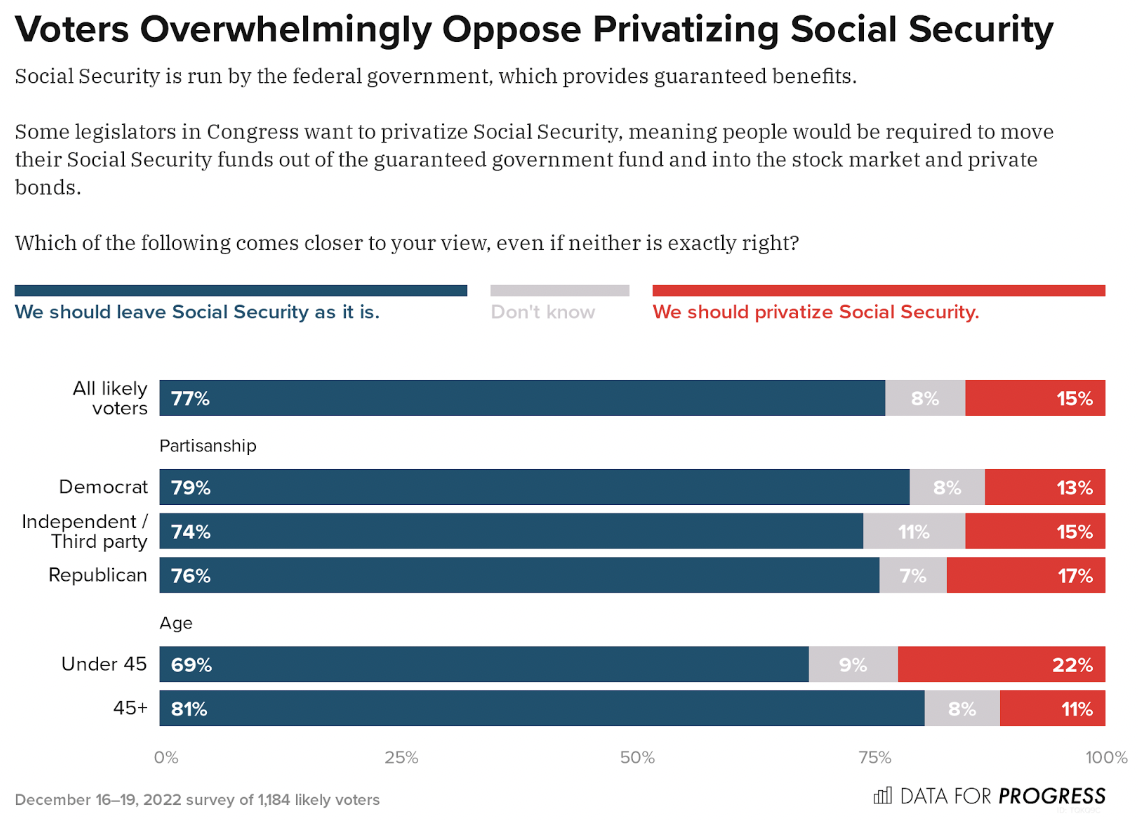Voters Overwhelmingly Oppose GOP Efforts to Privatize Social Security
By Lew Blank
Republicans in Congress are launching an all-out attack on Social Security. In February, Florida Senator Rick Scott released an 11-point plan that proposed to phase out all federal legislation — including Social Security and Medicare — in five years.
An even larger number of Republicans are pushing to privatize Social Security, which would require everyone to move their Social Security funds out of the guaranteed government fund and into the stock market and private bonds. This would result in cuts to Social Security benefits, increases in Americans’ payroll taxes, and trillions of dollars of federal borrowing.
In a new survey conducted from December 16-19, we find that voters across party lines overwhelmingly oppose Republican efforts to privatize Social Security. Seventy-seven percent of voters — including 79 percent of Democrats, 74 percent of Independents, and 76 percent of Republicans — think we should leave Social Security as is. Only 15 percent of voters think we should privatize Social Security.
Opposition to Social Security privatization also extends across age groups, with 69 percent of voters under 45 and 81 percent of voters 45 and over in agreement that Social Security should remain as is.
Our polling has repeatedly shown that Social Security is an issue where Democrats have an especially strong trust advantage. In Data for Progress’ post-election report, “Democrats on Offense,” we found that Social Security was the top performing issue among 12 that we tested, and that Democrats’ ability to advocate for protecting Social Security — while contrasting themselves with Republicans seeking to privatize it — helped them succeed in the 2022 midterms. Moving forward, our polling shows that Democrats should feel highly confident defending Social Security from Republican efforts to attack it, knowing that voters across party lines are on their side.
Lew Blank (@LewBlank) is a polling analyst at Data for Progress.

